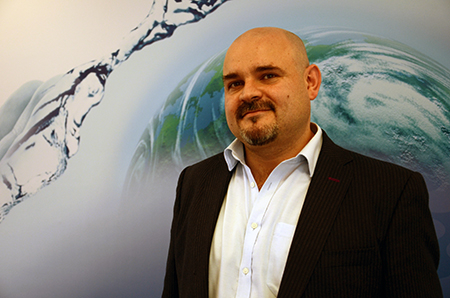 Dr Jose A.Lopez-Sanchez: “This new facility will give a huge boost to our quest to find new bio-derived organic and sustainable chemicals”
Dr Jose A.Lopez-Sanchez: “This new facility will give a huge boost to our quest to find new bio-derived organic and sustainable chemicals”
The University of Liverpool is to establish a state of the art Microbiorefinery (MBR) to develop the next generation of sustainable chemicals to use in the manufacture of materials, plastics, solvents and pharmaceuticals.
Fossil fuel sources currently provide the basis for the majority of chemicals used by industry, but decreasing supplies and environmental considerations mean there is a growing requirement for renewable and sustainable sources for raw materials.
The new facility, in collaboration with Unilever, will provide unique laboratory facilities and expertise to identify biopolymers derived from the by-products of carbohydrates, sugar and other commodities.
Dr Jose A.Lopez-Sanchez, Director of the MBR, said: “This new facility will give a huge boost to our quest to find new bio-derived organic and sustainable chemicals.
“The MBR brings together academic and industrial expertise to bridge the gaps between identifying new sustainable chemicals in the laboratory, testing and manufacturing them in small quantities and ultimately seeing them used by industry.”
Dr Neil Parry, Unilever Biotechnology Research Director said: “We are delighted to be partnering with the University of Liverpool on this significant project which could ultimately pave the way for household products of the future that are also kinder on the environment.”
The MBR will be available for large industry, researchers or start-up companies to use on an open access basis. The investment in new laboratory space at the University will enable co-location of Unilever research staff on campus.
